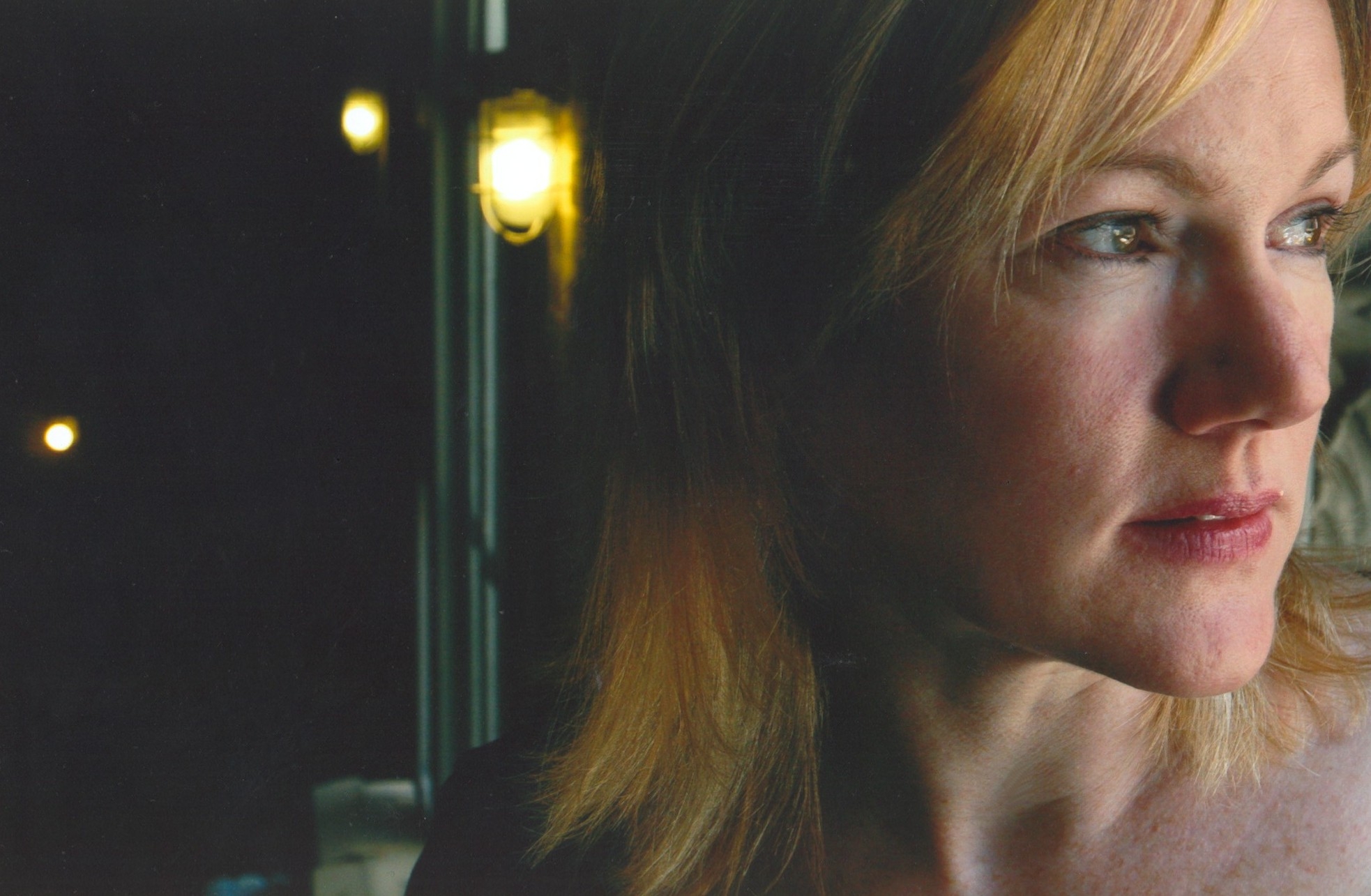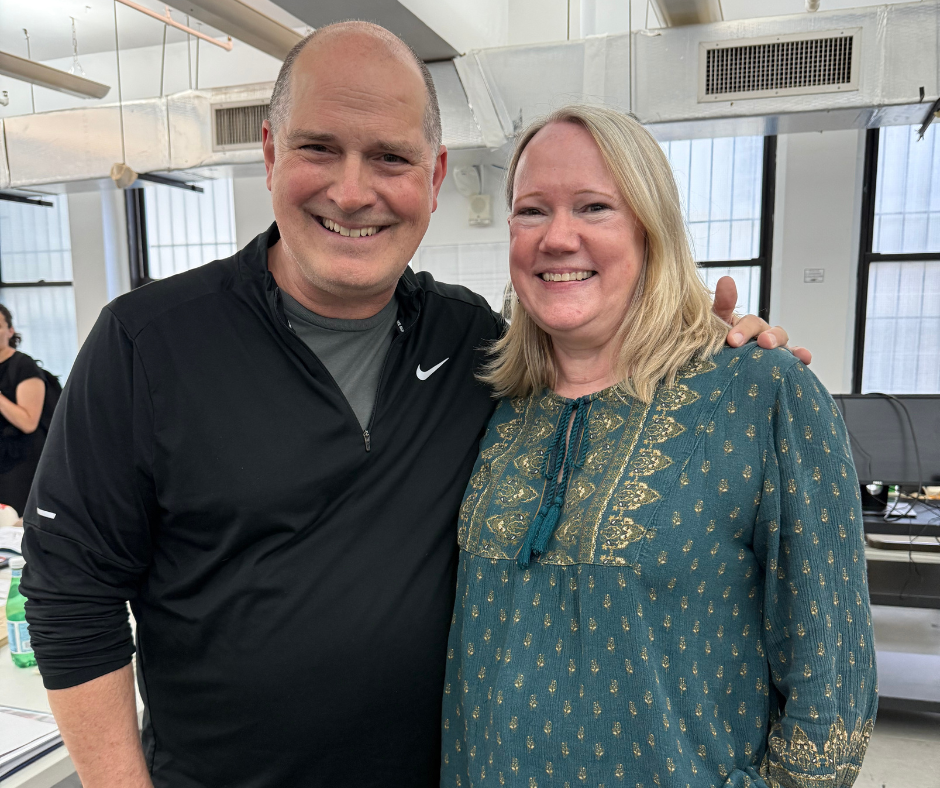Demeter? I Don't Even Know Her! An Interview with Kathleen Marshall

At the helm of the Playhouse’s production of Mythic is none other than Kathleen Marshall, one of the most celebrated directors and choreographers working in musical theatre today. A nine-time nominee, three-time Tony Award winner, Marshall is known for her dynamic revivals of Broadway classics like Anything Goes, The Pajama Game and Wonderful Town, as well as for her ability to craft stylish, emotionally grounded productions that sparkle with wit and movement. Her name brings instant credibility and excitement to any project — and with Mythic, she turns her attention to a new musical: a contemporary, pop-fueled myth that lets her flex both her comedic instincts and choreographic flair. She sat down with us to give some insights into the production. The interview has been edited for brevity and clarity.
Mythic has had a production in London and in Montreal before making its way to the U.S. How and when did you become attached to Mythic on its journey?
I was actually, originally, supposed to direct the production in London. And then due to scheduling conflicts I had to drop out. So, I've been a fan of Mythic for a long time, and a fan of [the writers] Marcus and Oran for a long time, so I'm thrilled to be able to do the U.S. premiere of Mythic.
It’s not a spoiler to say this musical is based on the ancient Greek myth of Persephone and Demeter. Other than this basic plotline, what would you say Mythic is about?
I think it's really about family, parents and children, and family of all kinds, and how families love each other, but they are also conflict with each other. On the one hand, you have [Demeter,] a parent who is very protective, and [on the other hand, Persephone,] a daughter who wants to break away from her protective mother. Then you have [Aphrodite] who is trying to please her father [Zeus], wants her father's approval and attention, and that father is threatened by the success of his daughter. So, it's all of that conflict. There's a lyric in the opening number. Oh, I hope I quote this correctly. “We’ve learned from ancient lore: Family is love and war.” Right? So, the ancient Greek myths teach us about the conflict among families.
The style of music in Mythic seems different than the musicals you’re primarily well known for directing and choreographing. How does the style of music influence your approach to choreography or visual storytelling?
Well, first of all, we have an A-list design team. We have just the best. We've got: David Korins on the set, Linda Cho doing the costumes, Ken Posner with lights and John Shivers with sound. We've got this top-notch design team and a great music team. So, I think it's going to look very contemporary and cool and hip, and not necessarily literal. Even though it's Greek gods, you're not going to be seeing columns and pediments and Grecian urns with a frieze on it. I think it's the sense that the gods, their stories, are timeless, right? They're timeless fables and so giving it this contemporary edge in terms of how the characters talk, how they move, how they sing, how they behave, how they dress, I think, is the way to connect it to a modern audience.

Blake Robison and Kathleen Marshall at the first rehearsal for Mythic.
Characters like Hades and Persephone are well known in culture, with many different actors that have famously portrayed both. How do these iterations of Hades and Persephone compare to others we might know and love?
I think of this more as the origin story of Persephone and Hades and Demeter, and how they came to be. As opposed to a lot of times when you see Hades, [he’s] just a one-dimensional bad guy. When you were saying, “What is this about?” Besides just these classic Greek myths, it's also about how people are perceived and how they perceive themselves. And you know, once you've been given a label, whether it's that you're the bad guy, or you're the cool dude, or you're the party girl, or you're the rebel, or shy, whatever it is, it's those labels [that] can be very sticky and very hard to get away from, because people expect you to behave that way. I think that part of it is that these characters have been labeled with something that's not necessarily the full acknowledgement of who they are. So, part of the journey of the musical is these characters discovering who else they are and how, really, they're much more than what their one-line label is.
The Playhouse is describing this show as being “on the path to Broadway.” Can you talk about where Mythic is right now in the process and what plans might exist for its future?
Well, we don't know yet. I mean, I think what's so wonderful is that Cincinnati Playhouse in the Park is such a beautiful theatre. I mean, the facilities are great. The footprint of the stage is great. The scene shop, the costume shop, the technical ability of the theatre is really incredible to support new work. And I think, like a lot of musicals where this is the first U.S. production, we have commercial producers attached and we're hoping that there's a path beyond Cincinnati. But we don't know what that is yet, and in a way, you can't know until you know what your show is. But I think this is a show that has the potential to have really broad appeal, and that it's a fantastic score. It's really recognizable characters and recognizable in terms of its human experience. I think people can sort of relate to and recognize the dilemmas and the challenges that these characters face.
After seeing Mythic, what conversations or feelings do you hope audiences leave the theatre with?
I think anybody would love it. But I think it's especially a wonderful opportunity for families, and families of teens and tweens, because I think it might open up a conversation about expectations and relationships between parents and children, and communication between parents and children.